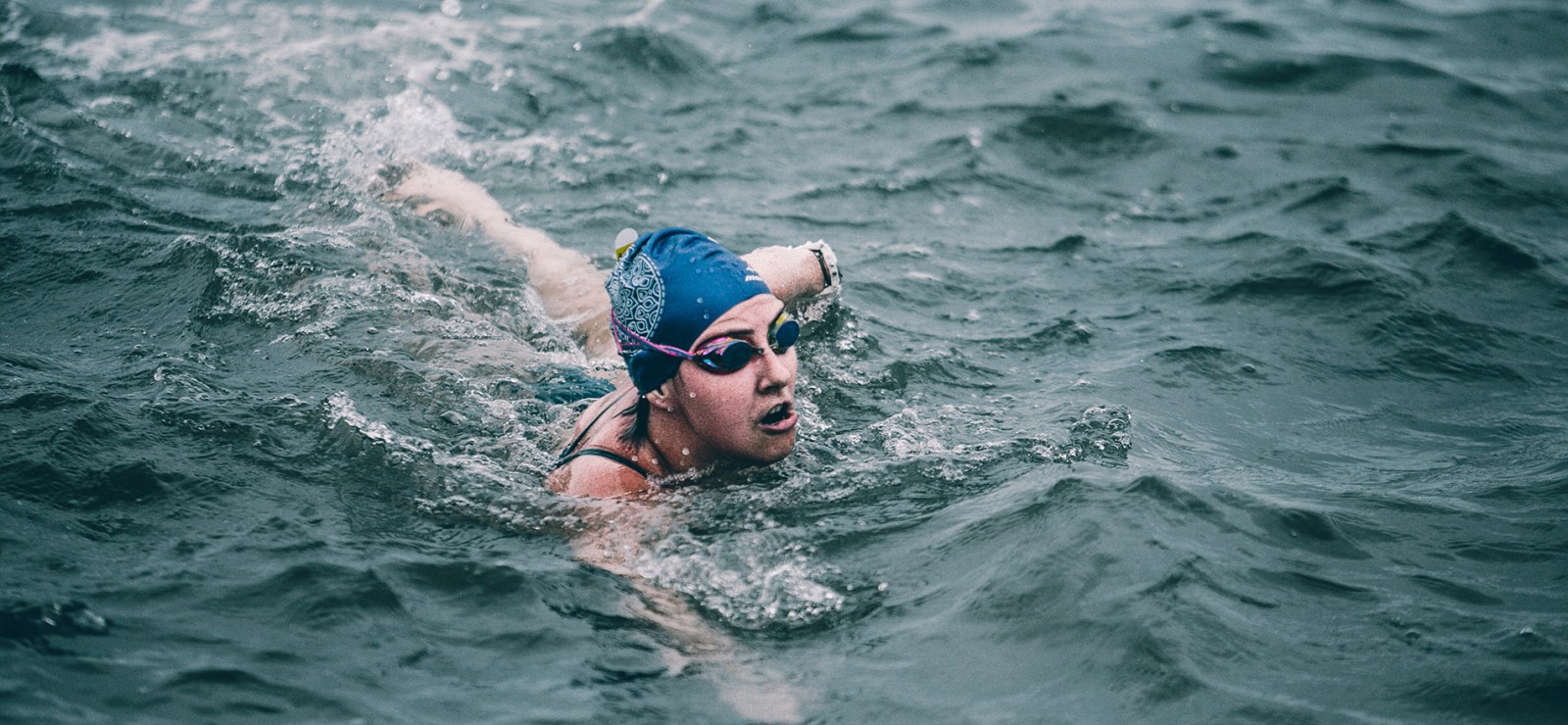Wild waving and shouting as their head bobs in and out of the water. Is that how to see that someone is drowning? Well, it is in the movies. Sadly, it’s much harder to spot someone drowning in real life. Why’s that? And what can we do about it?
“A swimmer in difficulties is able to attract the attention of bystanders. But someone who is drowning does not call for help”, says researcher Pieter Vansteenkiste from Ghent University (department of Movement and Sport Science). In his research, he takes a close look at the habits of lifeguards: how they scan the area and how quickly they are distracted. After all, it’s of vital importance that there’s no delay in recognising that someone is drowning.
How do you recognise someone who is drowning
People can suddenly be short of breath. Children who end up in shallow water or adults who are suddenly too exhausted. “They splash in the water, but lack the oxygen to shout”, explains Pieter. “We call this active drowning, and they react with what we refer to as an instinctive drowning response.” This phase is only short: if a child drowns, it takes an average of only 20 to 60 seconds before their head goes under.
But there are also those who first become unconscious and then drown. Pieter: “If you don’t know what you’re looking for, you won’t recognise it. They remain motionless and float on the water’s surface, head facing down, and we call this passive drowning.” For example, they may have suffered a heart attack or a stroke, held their breath for too long during a game, or bumped their head on the bottom of the swimming pool when diving in.
Why experienced lifeguards are better at spotting danger
It’s clear that people in trouble in the water are hard to spot. Certainly if you don’t even know what you’re looking for. Experienced lifeguards do know, and they show it in their search behaviour: Pieter Vansteenkiste discovered that they use a different technique when keeping watch in swimming zones. “We measured for how long and in which direction the lifeguards were watching.” To do so, Pieter and his colleagues used an Eye Tracker – a device, fitted inside a pair of glasses, that records the movements of the eyes.
Vital research
Pieter and his colleagues studied seven experienced and nine unexperienced coastguards. “Thanks to the Eye Tracker, we were able to establish exactly where they were looking as they guarded their zone. What did we discover? Although they watched the same areas, the way they did it was different.”
Experienced lifeguards spend more time watching the seas, and most of all: they fix their eyes for longer on zones that can be dangerous. “Less experienced lifeguards look around more fleetingly. Because they are less aware of where to look”, explains Pieter. “Not only that, experienced lifeguards apply a more variable scanning pattern.” This is really important: with a fixed watching pattern there is more chance that you’ll miss an unexpected problem. Pieter: “We call that ‘inattentional blindness’, and the same pattern can be witnessed among children in traffic.”
The research is of vital importance in training the lifeguards, believes Pieter. “It means that you can train the brain to recognise danger. If lifeguards see more pictures of active and passive drowning during their training they can become better at spotting danger.”
Does a student job help you in finding work later on?
Not got a student job this summer? Then you’d better find one, because it’s not only good for your budget, it also improves your opportunities on the job market says Brecht Neyt (faculty of Economics and Business Administration).
Read also
Why sports apps can actually be demotivating
They are already well established in elite sports, but amateur athletes are also increasingly using technology to improve their sports performance or prevent injuries. Sports technology is everywhere it seems, but there are pitfalls.
Ghent University researchers support Olympic track cyclists: optimal performance thanks to sensors and AI
If the Belgian track cyclists win a medal at the upcoming Olympic Games, it will not only be the result of top performances but also of top research. In the Flemish Cycling Centre Eddy Merckx, a stone's throw from the Watersportbaan, a group of researchers from the IDLab of UGent-imec supports our track cyclists with the help of artificial intelligence (AI).
Ghent-based DoCoLab helps to control doping at the Olympic Games
The doping controls at the upcoming Olympic and Paralympic Games will again have a Ghent connection. The doping control lab of Ghent University, DoCoLab for short, is sending a team of researchers to Paris to help check many thousands of samples. Peter Van Eenoo, head of the lab, professor and cycling fan, will be part of that team: "We won't have lots of free time, but I do hope to catch some of the cycling (laughs)."
New field hockey ball saves thousands of litres of water per game
Professional hockey fields require extensive wetting. Millions of litres of water are used annually to irrigate one field, making the sport expensive, unsustainable and inaccessible. That's why the international field hockey federation FIH aims to switch to dry fields as soon as possible.




